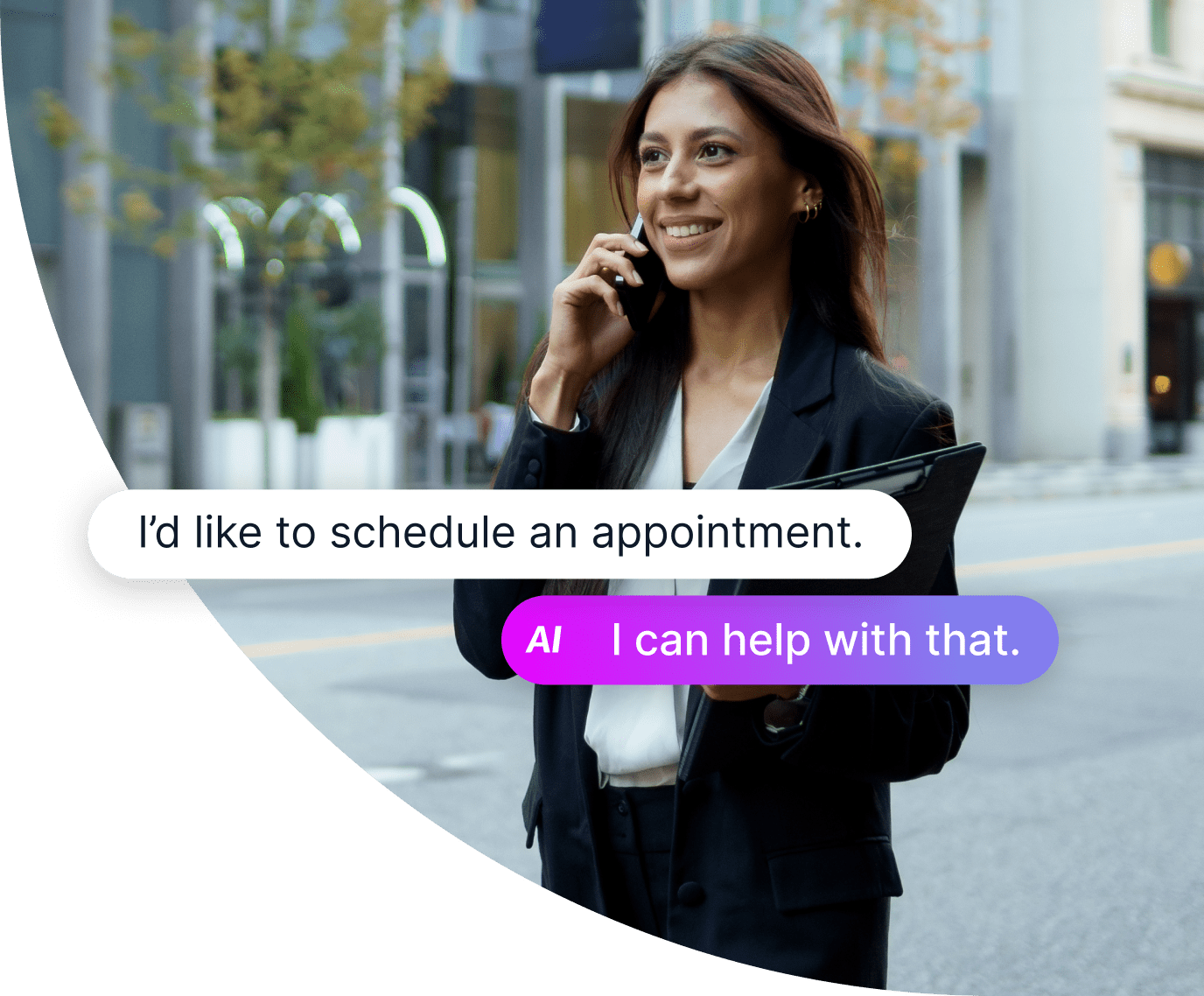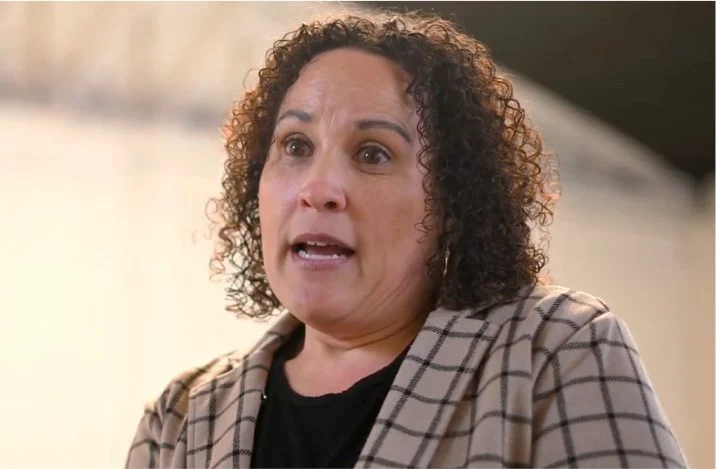
Picks up missed calls, manages Webchat and recare,
filling your schedule and delivering a quality patient experience.

Trusted by Dental Industry Experts

Annie AI for dentists provides 24/7 phone coverage, Webchat management and calls your unscheduled hygiene patients, capturing hundreds of thousands of dollars in LTV patient revenue.
Annie AI helps patients feel heard, schedules appointments, overcomes patient concerns, and calls patients without future appointments.
Your Questions Answered
What is Annie AI dental?
Is Annie AI for dentists customizable?
What problems will Annie AI solve for my practice?
Do dentists like using Annie AI?
Will my dental team like and trust Annie AI?
How much money is my office losing without Annie AI?
How reliable are Annie AI’s responses to patient questions?
How does Annie AI help make us more profitable?
Why Annie AI for Dentists?
Customized to Your Practice’s Needs
Annie AI is your Annie. She’s built from the ground up to be your dental AI receptionist.
Seamlessly Syncs with Your PMS/EHR
Secure API connections with major practice management systems to ensure accurate information is collected and stored.
Effortlessly Books Patient Appointments
Integrates with the practice management system to automatically put appointments on the schedule.
Fluent in English and Spanish
Annie AI is designed to ensure clear communication with your patient demographic.
Gets Smarter and more Efficient Over Time
Generative AI fine tuning makes Annie AI an employee that gets better at their job without coaching.
Expert at Addressing Patient Concerns
Annie AI overcomes objections, answer questions about insurance, procedures, and even give driving directions to your office.
Fully HIPAA-Compliant Security
We take cyber security extremely seriously. Annie AI is 100% HIPAA compliant.
Engages in Lifelike, Natural Conversations
Patients never feel like they are talking to a robot. Annie AI for dentists feels natural in conversations.
Select from a Variety of Realistic Voices
Just another way to make Annie AI yours. Multilingual and many voices to choose from.
Always Available, Never Fatigued
No bathroom breaks. No unexpected callouts. Annie AI is there 24/7 to handle any patient interaction.
Sign up, train, integrate and go live within 4 weeks.
How to get started with Annie AI for dentists

Get Started
No hoops—just a quick sign-up, and you’ll have your own Annie!

Train
Annie AI learns your processes, preferences, and procedures.

Integrate
Annie AI is seamlessly integration with your PMS/EHR.

Go Live
Phone, Webchat, and Recare are launched and tested.

Fine Tune
Annie AI is fine-tuned and gets better with every conversation.
Schedule a Demo of Annie AI
Annie AI for dentists is your front office’s new best friend, answering missed calls 24/7, scheduling appointments, calling unscheduled hygiene patients, and notifying you of emergencies.
Get started with Annie AI dental. Fill out your information so we can arrange a demo with you.
Annie AI Resources
Frequently Asked Questions
How is Annie AI for dentists built?
Annie AI for dentists is a custom AI agent built on ChatGPT’s large language model. Additional training and layering has given Annie AI the persona of a front desk team member for a dental practice. In addition to this persona she is then further trained on the details of a specific dental practice giving her a sophisticated level of knowledge of how the practice is run and functions. With all of this training Annie AI becomes an extension of you dental team.
What is Annie AI dental and how does it work for dentists?
Annie AI Dental is an all-in-one virtual receptionist that answers inbound phone calls, handles dental Webchat questions, and—uniquely—makes outbound calls to unscheduled hygiene patients. It taps into your practice-management software, speaks to patients in natural language, books appointments in real time, and routes complex issues to your front desk, saving hours of administrative work every week.
Can Annie AI for dentists automatically call patients who are overdue for hygiene and schedule them?
Yes. Annie AI for dentists can run a protocol that searches your database for patients with no future hygiene appointment and no visit in a set timeframe (e.g., six months). It then auto-dials each patient, confirms their availability, and books the cleaning directly into your schedule—re-activating your hygiene recall list without tying up staff time.
Is Annie AI Dental HIPAA-compliant and does it integrate with systems like Dentrix, Eaglesoft, or Open Dental?
Absolutely. Annie AI dental encrypts all patient data to meet HIPAA standards and connects through secure APIs with leading platforms such as Dentrix, Eaglesoft, and Open Dental, so your records, schedules, and workflows stay intact from day one.
Is Annie AI a dental specific AI agent?
Annie AI was made just for dental practices. From the ground up she’s been built to converse and function as a member of a dental team. Being a AI agent for dental practices gives her unprecedented capabilities. She has the ability to connect directly to a dental practices practice management system, which allows her to schedule, confirm appointments, call unscheduled hygiene patients, seamlessly manage a dental practices Webchat, all without human intervention. Annie AI is a member of your dental team.
Will AI replace dentists?
No, AI is not replacing dentists. While AI technology is advancing rapidly, it serves to enhance, not replace, the work of dental professionals.AI-powered toolsare helping dentists analyze X-rays more accurately, detect cavities and disease earlier, and even operate robotic arms for precise procedures. These advancements improve efficiency and diagnostic accuracy, but they don’t replace the expertise, judgment, and patient care that only a dentist can provide. Rather than eliminating the role of dentists, AI supports dentists, enabling greater productivity and better patient outcomes.
How can AI be used in dentistry?
AI is transforming dentistry in three main areas: AI dental marketing, practice management, and clinical care.
- Dental Marketing: AI helps practices create engaging content such as imagery, music, dental logo design, social media posts, SEO website copy, and more, making it easier to attract and connect with patients.
- Practice Management: AI is streamlining operations by managing web chat, capturing missed phone calls and integrating with patient management systems to verify insurance, update patient information, and improve internal workflows.
- Clinical Care: AI supports dentists with diagnostic tools like AI-enhanced X-ray analysis for detecting cavities and disease and assists with innovative technologies such as robotic arms and 3D imaging to improve patient care.
These advancements make dental practices more efficient, accurate, and patient-focused.
Will AI replace dental teams?
No, AI will not replace dental team members, but it will take over some routine tasks, allowing the team to focus on building strong patient relationships. AI cannot replace the human touch—it’s not conscious, doesn’t form relationships, and doesn’t understand itself in the way a person does. However, AI can act as an entry point for engaging potential patients, starting the conversation, and then passing that relationship to a team member.
For example, AI can provide 24/7 phone coverage, addressing the issue of missed calls—a common source of lost revenue. On average, dental practices miss 32% of inbound calls, potentially losing $100,000 to $150,000 annually when patients can’t reach the practice. Patients typically don’t leave messages or call back, and they prefer to avoid voicemail. AI can capture these calls, offering immediate support and ensuring patients feel attended to before handing them off to the dental team to continue building a meaningful relationship.
What are the disadvantages of AI in dentistry?
While AI offers many benefits, there are some challenges when implementing it in a dental practice:
- Integration Complexity:Integrating AI with existing practice management software can be technically challenging, requiring careful setup and adjustments to ensure smooth operation. The integration of AI into a PMS system should be managed by a technically proficient dental marketing or support company.
- Staff Training Requirements: Dental teams may need comprehensive training to use AI tools effectively, which can take time and temporarily disrupt daily workflows.
- Data Privacy Concerns: Using AI involves handling sensitive patient information, raising concerns about data security and the need for HIPAA compliance with privacy regulations.
Addressing these challenges requires planning, training, and careful data management to ensure AI enhances patient care and practice efficiency.
What is the future of AI in dentistry?
The future of AI in dentistry is incredibly promising. With hundreds of millions of dollars invested in AI technology and rapid advancements from companies like Meta, OpenAI, Google, and Tesla, AI is progressing at an unprecedented rate. The goal for many of these companies is to develop generative AI—intelligent systems capable of not just providing information but also solving complex human challenges, such as climate change and disease.
As AI technology continues to improve, the dental industry will inevitably benefit. New tools like Annie for dentists are emerging to help dental teams deliver the highest quality of care, streamline practice management, improve dental marketing with AI, and enhance patient experience. Dental practices that embrace AI will gain a competitive edge, improving profitability and outperforming those that don’t integrate these advancements.
The future is still unfolding, but dental AI is already set to revolutionize how dental practices operate and deliver care. Dental practices that adapt to this evolving technology will be positioned to provide better solutions, improve patient outcomes, and drive greater efficiency and success.
















